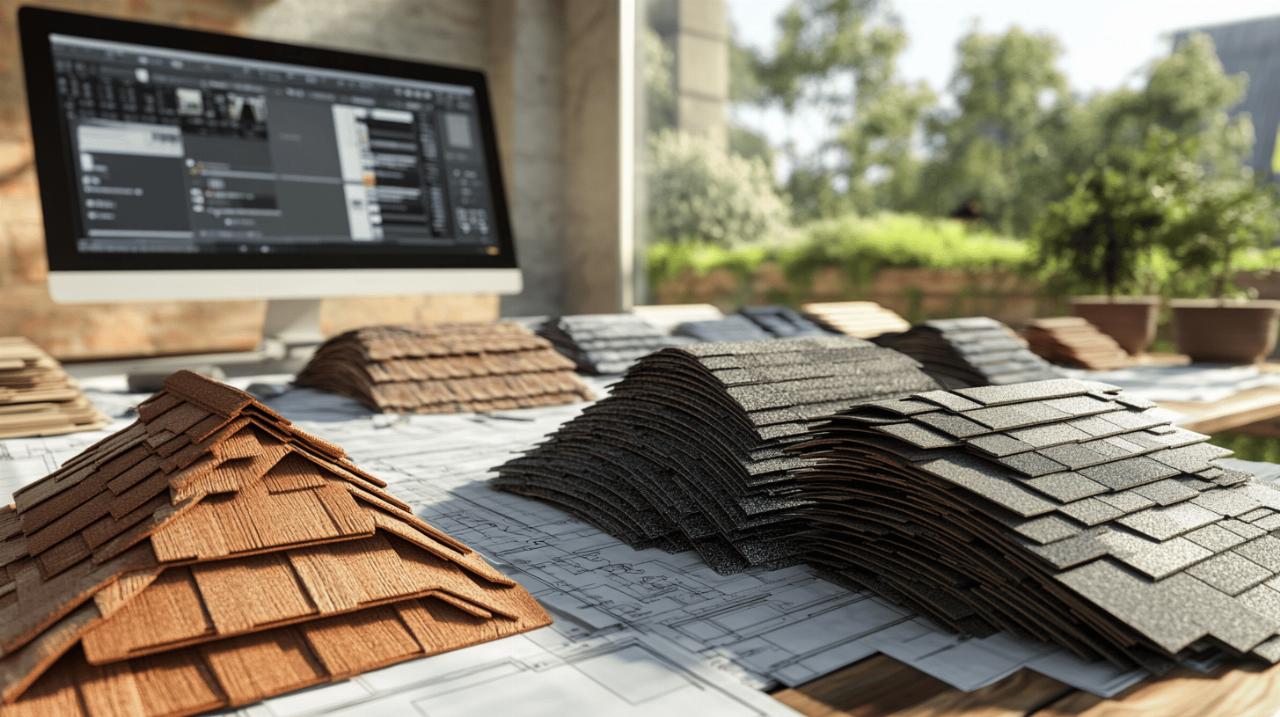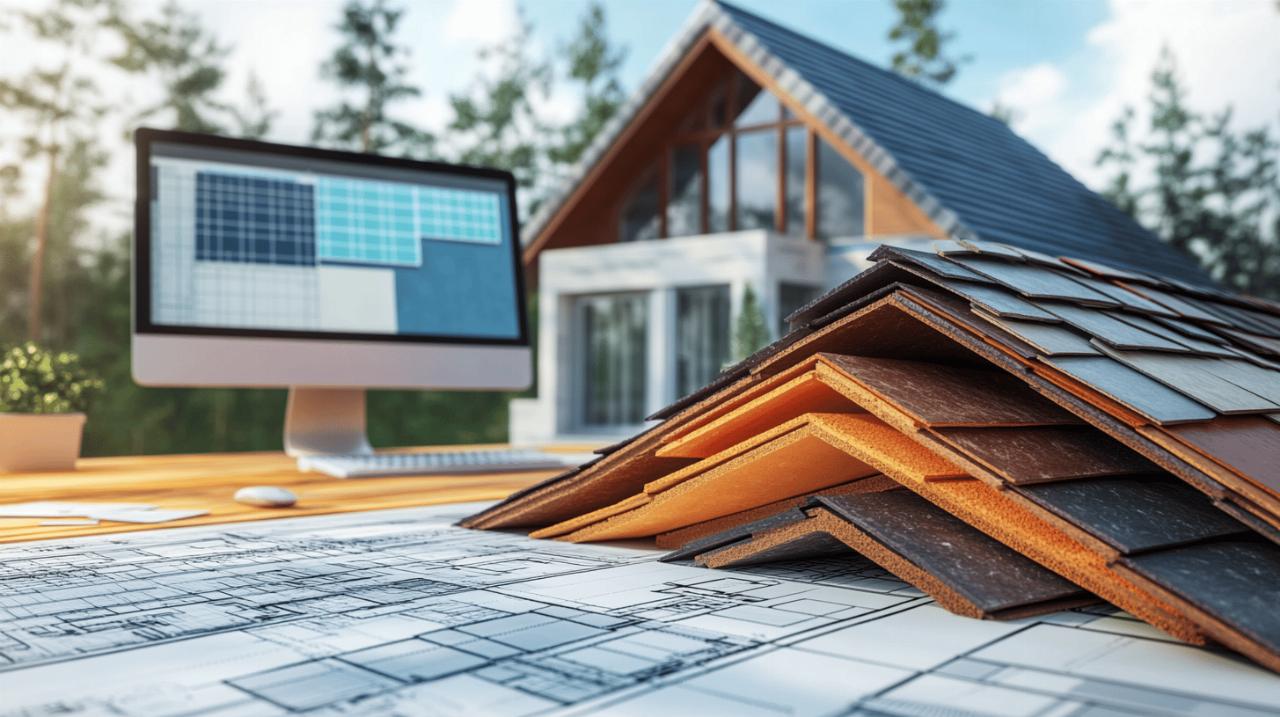Tips for Choosing the Perfect Roofing Materials for Your Home
Selecting the right roofing material for your home is a decision that impacts not only its appearance but also its durability, energy efficiency, and overall value. With numerous options available on the market today, homeowners face the challenge of navigating through various materials, each with distinct advantages and considerations. This guide aims to simplify your decision-making process with practical advice for choosing the ideal roofing solution for your property.
Matching materials to your home’s architecture
The architectural style of your home should be one of the primary considerations when selecting roofing materials. A harmonious match between your roof and the overall design of your property enhances curb appeal and maintains the integrity of its character. Many homeowners in Exeter and across South West England consult with experts like SPS Roofing Ltd to ensure their roofing choices complement their home’s aesthetic. You might want to check out additional resources on materials selection at https://www.residencelapergolastintino.it/ for more detailed guidance on architectural compatibility.
Traditional roofing options for period properties
Period properties often benefit from traditional materials that preserve their historical character. Slate tiles remain a popular choice for heritage homes, offering an authentic appearance with impressive longevity of 75-100 years. Clay tiles also provide excellent durability, lasting well over a century in many cases, while maintaining the classic aesthetic that suits Georgian, Victorian, and Edwardian architecture. For more rustic period properties, wood shingles or shakes can create a warm, natural look that ages beautifully over their approximately 25-year lifespan.
Modern materials for contemporary designs
Contemporary homes offer more flexibility in roofing choices, with metal roofing becoming increasingly popular in modern architecture. Aluminium and steel options from specialists like COMAX Roofing provide sleek, clean lines that complement minimalist designs. Aluminium roofing can last up to 75 years, while steel options typically offer around 40 years of service. For those seeking innovation, solar roofs combine functionality with forward-thinking design, generating electricity while serving as a protective covering. Green roofs represent another modern option, incorporating plants and soil for environmental benefits and distinctive visual appeal.
Weather considerations for british homes
The British climate presents unique challenges for roofing materials, particularly in regions like South West England where rain and wind are persistent concerns. Local experts like Crown Roofing Specialists often advise homeowners to prioritise weather resistance when selecting materials for UK properties. The performance of different roofing materials can vary significantly depending on your specific location and exposure levels.
Roofing solutions for rainy regions
In areas with high rainfall, proper water management is essential for roof longevity. Metal roofing systems excel in wet conditions, as their smooth surfaces allow water to run off efficiently. COMAX roofing products are designed with weather resistance in mind, with options like standing seam profiles creating water-tight barriers. Slate tiles also perform admirably in rainy conditions, resisting water absorption better than many alternative materials. When installing any roofing in rainy regions, proper underlayment and flashing details become particularly important to prevent leaks and water damage.
Wind-resistant materials for exposed areas
Coastal locations and elevated sites often experience stronger winds that can stress roofing materials. Metal roofing from suppliers like COMAX offers excellent wind resistance when properly installed, with their Klik and Falc systems providing secure interlocking edges. The roof configuration also plays a crucial role in wind performance, with hip roofs generally offering better aerodynamics than gable designs. For areas with extreme wind exposure, consulting with SPS Roofing Ltd or similar specialists can help identify the most appropriate materials and installation techniques to ensure long-term stability.
Budget planning for roof installations
The financial aspect of roofing projects requires careful consideration of both immediate and long-term costs. While the average roofing project costs between £10,000 and £20,000, prices vary significantly based on material choice, property size, and complexity. Working with established roofing contractors like SPS Roofing Ltd, which operates throughout Devon, Cornwall, Somerset, and other parts of South West England, can help ensure you receive accurate estimates tailored to your specific requirements.
Initial investment vs long-term value
Different roofing materials represent varying levels of initial investment. Asphalt shingles typically offer the most economical starting point at around £10,000 for an average home, while premium options like slate can reach £25,000 or more. However, considering the longer lifespan of premium materials often reveals better long-term value. Slate roofing, with its potential century-long service life, may cost less per year than more affordable options that require more frequent replacement. Metal roofing presents a middle-ground option, with an average cost of about £16,500 and an impressive 80-year lifespan.
Maintenance costs across different materials
Maintenance requirements significantly impact the true lifetime cost of roofing materials. Clay and concrete tiles demand minimal upkeep beyond occasional cleaning and inspection, making them economical long-term choices despite higher initial costs. Metal roofing from suppliers like COMAX similarly offers low maintenance requirements, though finishes may need refreshing after several decades. By contrast, wood shingles require more regular maintenance including treatments to prevent rot and insect damage. Factoring these ongoing expenses into your decision helps provide a more complete picture of which material offers the best value for your specific situation.
Durability and longevity factors
The expected lifespan of roofing materials varies dramatically, making durability a critical consideration for homeowners seeking long-term solutions. Factors including material quality, installation expertise, local climate, and maintenance practices all influence how long your roof will last. Companies like SPS Roofing Ltd emphasise the importance of selecting materials with proven performance records for the specific conditions of South West England.
Comparing expected lifespans of popular materials
Among conventional options, clay and concrete tiles lead in longevity, often exceeding 100 years with proper installation and maintenance. Slate follows closely behind with 75-100 years of expected service. Metal roofing, particularly aluminium with its 75-year guarantee from manufacturers like COMAX, represents another durable choice. Steel roofing typically offers around 40 years of reliable performance. More economical options like asphalt and wood shingles generally provide approximately 25 years of service before requiring replacement. Solar roofing systems also last about 25 years, while green roofs typically perform well for 30-50 years when properly maintained.
Signs that indicate quality roofing products
Quality indicators for roofing materials include comprehensive warranties, manufacturing certifications, and material thickness or weight specifications. Reputable manufacturers like COMAX offer detailed product guarantees that reflect their confidence in material performance. When evaluating options, examine the finish quality, which in metal roofing might include PES HD, textured MAT, or PVDF coatings that enhance weather resistance and colour retention. The availability of technical support and installation guidelines from manufacturers also suggests a commitment to product quality and performance. Consulting with experienced professionals from established firms like Crown Roofing Specialists can help identify these quality markers across different material types.
Eco-friendly roofing choices
Environmental considerations increasingly influence roofing decisions as homeowners seek to reduce their ecological footprint while potentially saving on energy costs. Sustainable roofing options include materials with recycled content, long lifespans that reduce replacement waste, and features that improve energy efficiency. The growing availability of these eco-conscious options means homeowners no longer need to choose between environmental responsibility and performance.
Energy-efficient options to reduce bills
Metal roofing stands out for its energy efficiency, with reflective surfaces that minimise heat absorption and potentially reduce cooling costs during warmer months. COMAX offers various finishes that enhance these reflective properties, making their aluminium and steel products particularly suitable for energy-conscious homeowners. Solar roofing represents another energy-efficient option, generating electricity while serving as a protective barrier. Though the initial investment averages around £27,000, these systems can significantly reduce electricity bills over their 25-year lifespan, providing both environmental and financial benefits.
Sustainable materials with low environmental impact
Green roofs offer perhaps the most direct environmental benefit, creating habitats for wildlife, improving air quality, and managing stormwater runoff. Though complex to install and maintain, their environmental advantages make them increasingly popular for eco-conscious projects. Slate represents another environmentally sound choice, as its natural composition and exceptional longevity reduce lifetime resource consumption. Recycled metal roofing similarly offers sustainability benefits, requiring less new material production while maintaining excellent performance characteristics. When selecting materials for their environmental merits, consider both production impacts and end-of-life recyclability to ensure truly sustainable choices.
Professional guidance and installation
Even the highest quality roofing materials perform poorly without proper installation, making professional expertise essential for roofing projects. Companies like SPS Roofing Ltd, operating throughout South West England from their Exeter base, provide valuable guidance throughout the selection and installation process. Their experience with local conditions and building practices helps ensure appropriate material choices and application techniques.
Questions to ask your roofing specialist
When consulting with roofing professionals, inquire about their experience with your preferred materials and similar projects in your area. Ask about specific installation techniques for your chosen roofing system, particularly regarding details like flashing, ventilation, and underlayment that significantly impact performance. Request information about material warranties and installation guarantees, including what maintenance might be required to maintain coverage. Discuss timeline expectations, potential complications based on your specific property, and how adverse weather might affect the installation process. Thorough questioning helps establish clear expectations and ensures you receive appropriate guidance for your unique situation.
Vetting qualified roofers for your project
Finding qualified installation professionals requires careful vetting of credentials, experience, and reputation. Look for established companies like Crown Roofing Specialists with verifiable physical addresses and contact information. Request evidence of proper licensing, insurance coverage, and manufacturer certifications that indicate training with specific materials. Review portfolios of completed projects similar to yours, and ask for references from recent customers in your area. Online reviews and ratings provide additional insights, though these should complement rather than replace direct verification of qualifications. Taking time to thoroughly evaluate potential contractors helps ensure quality installation that maximises material performance and longevity.
Navigating building regulations and planning permission
Regulatory compliance adds another dimension to roofing material selection, particularly in the UK where building regulations and planning restrictions can significantly impact available options. These requirements vary by location and property type, with conservation areas and listed buildings facing particularly stringent controls. Consulting with local authorities early in the planning process helps avoid costly compliance issues later.
Local authority requirements for roofing projects
Building regulations typically address functional aspects of roofing including structural loading, fire safety, and thermal performance. Different materials must meet specific standards in these areas, with documentation required to demonstrate compliance. Metal roofing from manufacturers like COMAX comes with technical specifications that help satisfy these requirements. Some local authorities may have additional requirements regarding drainage systems, roof pitch limitations, or specific structural considerations. Professional roofing companies like SPS Roofing Ltd typically maintain current knowledge of these regulations and can guide homeowners through the compliance process.
Conservation area considerations and restrictions
Properties in conservation areas or with listed status face additional restrictions designed to preserve historical character. These often limit material choices to those visually compatible with the area’s architectural heritage, potentially requiring traditional options like slate or clay tiles. Some conservation areas permit modern materials that closely resemble traditional ones, while others insist on authentic materials regardless of cost implications. In these sensitive areas, securing planning permission before proceeding with roofing work becomes particularly important. Consulting with conservation officers and experienced roofing specialists helps navigate these complex requirements while achieving both compliance and performance goals.


